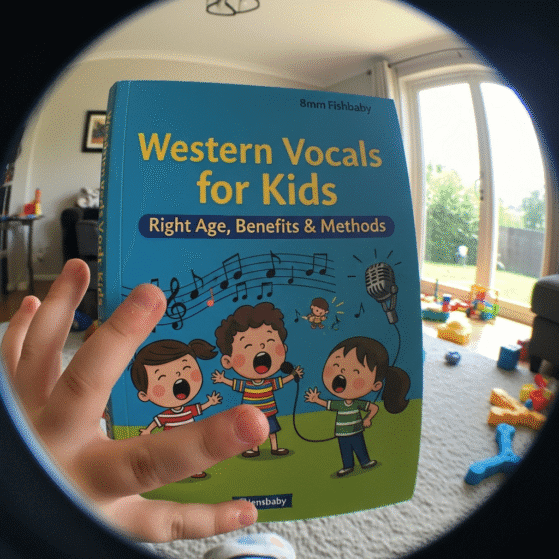Vocal Strain | How to Prevent and Recover
The voice is an incredible gift. It’s how we sing, teach, inspire, and connect. But like any instrument, it needs proper care to remain strong, clear, and resilient. Vocal strain is a common challenge faced not only by singers, but also by teachers, speakers, coaches, content creators—anyone who relies on their voice daily. It can creep in quietly or strike suddenly, and if left unchecked, it may lead to longer-term damage.
The good news? Most vocal strain is preventable, and even when it happens, recovery is absolutely possible—with patience, awareness, and the right habits.
Let’s take a closer look at how vocal strain happens, how to avoid it, and how to heal when your voice starts asking for rest.

The Hidden Demands on Your Voice
Most people don’t realize just how much strain the voice goes through every day. Whether it’s leading a classroom, recording a podcast, chatting over noisy environments, or singing for hours, our vocal folds are hard at work—vibrating thousands of times per second. When the voice is used without proper technique, without enough rest, or in less-than-ideal conditions (like dry air or illness), it begins to wear down.
Common symptoms of vocal strain include hoarseness, a rough or breathy tone, vocal fatigue, throat tightness, and a reduced vocal range. Sometimes, the voice may disappear altogether for a while. These are warning signs, not to be ignored, but gently listened to.
Another important aspect often overlooked is diet. Certain foods—like very spicy meals, chocolate, caffeine, and citrus—can trigger acid reflux, which irritates the vocal cords. Maintaining a voice-friendly diet, especially on days you plan to perform or speak, can support long-term vocal health.

Prevention Begins with Awareness
Preventing vocal strain isn’t about grand changes; it’s about being mindful of small, consistent habits. Hydration is a simple but powerful tool—your vocal cords need moisture to move freely. Sipping water throughout the day and using a humidifier in dry environments can make a big difference.
Warming up the voice before extended use is just as important. A few minutes of light humming, lip trills, or gentle scales can help prepare the vocal muscles. And it’s not only about warming up; cooling down after intense vocal activity—through soft humming or light descending scales—can help the voice settle back into a relaxed state.
Breath support is another key element. Many people unknowingly push their voice from the throat rather than supporting it with steady airflow from the diaphragm. Learning to breathe deeply and speak or sing from a supported, relaxed place can take significant pressure off the vocal cords.
And of course, rest matters. Just like any other muscle in your body, your voice needs downtime. Taking short vocal breaks throughout the day, planning silent periods after long speaking sessions, and avoiding excessive talking when tired or unwell are all part of respectful vocal care.
Another practical tip is monitoring your vocal load—essentially, tracking how much voice use you’re doing each day. If you have a full day of meetings or rehearsals, try to balance it out with periods of vocal rest or light use the next day. This kind of planning can help you avoid overuse before it builds into strain.

When Strain Happens | The Path to Recovery
Even with the best intentions, strain can still happen—especially during illness, busy seasons, or periods of intense vocal use. When it does, the first step is simple but crucial: rest. True vocal rest means silence—not even whispering. It might feel awkward at first, but even a day or two of rest can help your vocal folds begin to heal.
Staying hydrated during recovery is essential. Steaming your voice with warm water vapor can bring relief and soothe irritated tissues. Herbal teas with honey—particularly chamomile or licorice root—can help calm inflammation. Avoiding caffeine, spicy foods, alcohol, and anything that can trigger acid reflux is also important during this time.
Equally vital is managing tension. Often, when we lose our voice or experience discomfort, we unconsciously tense up—especially in the jaw, neck, or shoulders. Gentle stretching, mindful breathing, and simply becoming aware of your posture can aid the recovery process.
When your voice begins to return, ease back slowly. Start with soft humming. Avoid jumping straight back into full-volume speech or demanding vocal tasks. Let the voice reacclimate gradually.
One subtle but helpful addition during recovery is sleep. Quality sleep allows your entire body—including your vocal system—to repair and recover. If you’re tired and underslept, your voice will likely reflect it with weakness and fatigue.

Knowing When to Seek Help
If vocal issues persist for more than two weeks, it’s important not to guess. Consulting an ENT specialist or a certified voice therapist can help identify any underlying concerns—such as nodules, polyps, or chronic inflammation—and provide personalized treatment strategies.
For those who use their voice professionally, regular check-ins with a vocal coach or therapist can be a worthwhile investment. They can help you refine your technique, identify harmful habits, and build a sustainable routine tailored to your unique vocal needs.

A Voice Worth Caring For
Your voice is a reflection of your personality, your work, and your expression. It deserves the same care and attention you would give to any instrument you rely on daily. With mindful habits—hydration, rest, warm-ups, breath support, a healthy diet, and sleep—you can avoid most of the common causes of vocal strain. And when strain does happen, you now have the tools to respond with care, not panic.
Remember, your voice doesn’t need to be perfect—it just needs to be healthy, free, and supported. Protect it with love, and it will continue to carry your message to the world.

Conclusion | Your Voice, Your Responsibility
Your voice is one of the most personal and powerful tools you have. Whether it lifts melodies into the air, brings clarity in a classroom, or carries a message across a room—or a screen—it deserves care and attention.
Vocal strain is not just a professional hazard for singers or speakers; it’s a reminder that our bodies have limits, and respecting those limits is a form of strength. With daily awareness, healthy vocal habits, and a willingness to rest when needed, you can not only avoid damage but also unlock greater freedom and ease in your voice.
So the next time you step up to speak or sing, pause for a moment. Breathe. Hydrate. Warm up. Listen to what your voice is telling you. Because a well-cared-for voice isn’t just stronger—it’s more expressive, more enduring, and more authentically you.
If you’re ready to develop your voice with proper technique, style, and confidence, we invite you to join The Mystic Keys and explore our Western Vocal Lessons Online. Learn from experienced instructors, master the foundations of vocal health, and grow into the artist or speaker you’re meant to be.








